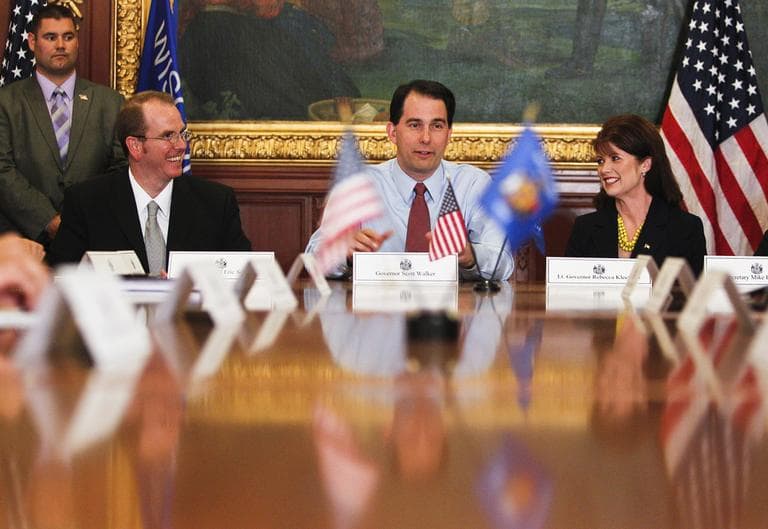Advertisement
Lessons From Wisconsin For Elizabeth Warren

There are many things about the unsuccessful campaign to unseat Gov. Scott Walker in Wisconsin that should worry Elizabeth Warren’s campaign team.
No Shows
In Wisconsin, anti-Walker forces believed that getting their voters to the polls would be enough to defeat a politician who had become a lightning rod for public employee dissatisfaction. Yet the turnout that they predicted would drive Walker from office never showed up.
Union Dissent
Even more disconcerting, despite union leaders campaign against Walker, including sit-ins and other protests that drew national attention, he still carried nearly 40 percent of union households. Apparently they bought Walker’s message.
No Obama
Believing turnout would approximate what President Obama reached in the 2008 general election in Wisconsin, in 2012 the anti-Walker forces actually turned out 436,000 fewer votes than Obama received — Obama won by a nearly 14 points. Meanwhile a multimillion dollar advertising campaign coupled with an aggressive get-out-the-vote operation and early voting, gave Walker 1.33 million votes to the 1.26 million votes for John McCain. Milwaukee Mayor Tom Barrett was outspent 7 to 1.
The missing 436,000 people who had voted for Obama but didn’t show up for Barrett in 2010 were younger, poorer, less politically engaged and more likely to vote Democratic. But getting them to the polls is far more difficult than sending emails, tweeting, and calling your neighbors.
The John Roberts Court
The Wisconsin Democracy Campaign, a nonpartisan watchdog group, estimates that spending on Walker’s race by the candidates and outside groups will reach $75-80 million. This absurdity is a direct result of the Roberts court’s unleashing of corporate financial bullying in the Citizen’s United case.
Writing in The Fiscal Times, Merrill Goozner, said that Walker was aided by “a massive ground and air operation funded by right wing [superPACs.] Virtually every potential Republican voter in the state trekked to the polls, while organized labor’s vaunted ground game failed miserably in mobilizing voters.”
Avalanche Of Negativity
The tens of millions the Republicans spent beat labor at organizing and communicating. Business writer Goozner said they saturated the airwaves with negative campaign ads and subjected voters to endless robo-calls and false messages from door-to-door canvassers. The overall effect of an avalanche of negativity is to drive turnout down, especially among less informed and young voters, many of whom may well vote Democratic.
Significantly, the same voters who sided with Walker would have given President Obama a comfortable lead in a match-up with Mitt Romney.
Ticket splitting has clear precedent in Massachusetts. Painful as it is for me to recall, Ronald Reagan carried Massachusetts twice. Voters have put Republicans into the governor’s office frequently while voting Democratic for everything else. Relying on the president’s popularity to carry Warren across the finish line is a gamble.
Warren needs a clear message. That is where the Walker campaign excelled; his message was, "Keep me and I’ll keep cutting bureaucrats and I’ll keep cutting your taxes." The Warren campaign doesn’t seem to have a message other than “fightin’ for the middle class,” which offers no proof and no plan.
One Of Us
Union membership in Massachusetts is smaller than Wisconsin’s; its votes, added to those of the state’s liberal base, aren’t enough to beat Sen. Scott Brown. He is popular among working class voters who see his pickup truck and jock radio banter as signs he’s one of theirs. Indeed, his bumper sticker says “One of us.”
Those familiar with the Warren operatives say they may be weak in message and media, but they’re good at identifying and turning out their vote. Wisconsin shows how risky that can be.
This program aired on June 11, 2012. The audio for this program is not available.
